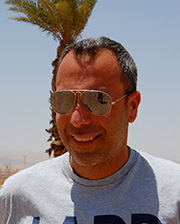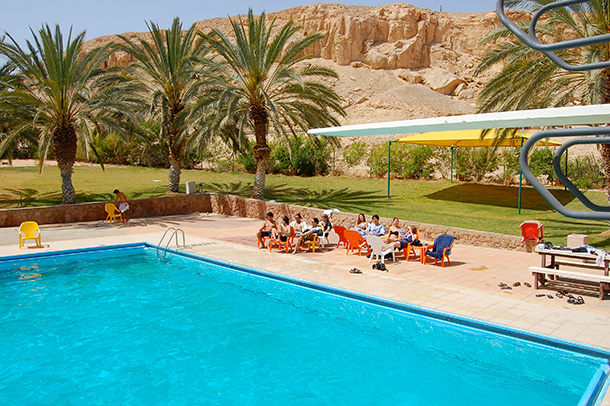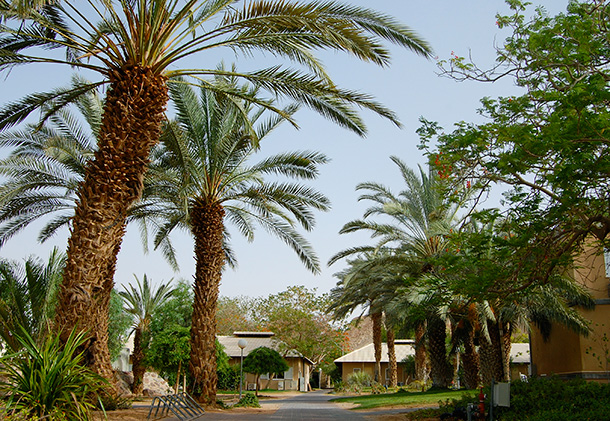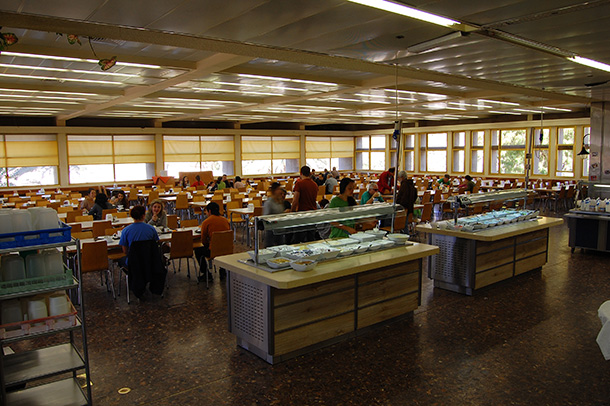Reporting Live from… Kibbutz Yotvata!

Achilles Peklaris
Journalist Achilles Peklaris started his world journey back in 2001, September, when he was sent to New York City to cover the day after September 11th, when Ground Zero was still smoking. A couple of years after that, he went back to Athens, to continue his career as a political correspondent, but the traveling virus was already deep into his blood.
On the eve of 2006, a former New Yorker from Midtown East and a former Athenian from Kolonaki and Exarchia, started traveling and writing for his papers and magazines. He spent time in Serbia, Kosovo, Hungary and a few other countries in the Balkan Peninsula and then headed south to Israel, where he first discovered Kibbutz Yotvata.
In 2008 he went west again and spent another 3 years in New York City, covering the 2008 Election and the recession for the Athens daily “Kathimerini” and many other Greek publications. During his second stay in the Big Apple he produced a book of portraits along with the photographer Alexandros Lambrovassilis, profiling 150 different types of New Yorkers – from a banker to a pimp and from a homeless guy to a philosopher – and their reactions to a positive change (Obama) and a negative change (recession), moving on the Social Anthropology, Psychology and History side of journalism. His work traveled to Athens, New York and Shanghai, exhibited in photo festivals and museums and got reviewed by the sum of Greek Press, the NY Times and the Shanghai Daily.

Kibbutz Yotvata
His next stop was Athens, where he jumped into the riots of 2011, after the country went downhill in its long-lasting crisis and dealt with the Greek Indignados. Then he took a one year sabbatical in the island of Syros, where half of his family comes from, and he portraited different local people in a mellow, quiet place, where violence and crime are minimal. And now, since January, he resides in Israel, a country in a constant turmoil, where he moves between Tel Aviv and Kibbutz Yotvata, comparing behaviors, mentalities and mind frames of different people. So, finally, what is his aim?
“I believe in people’s soul. It’s the womb that gives birth to History. Everything starts from a single person’s soul and it can turn out to a global freedom act, like Martin Luther King or a global bloody massacre, like Hitler’s,” he says and explains: “All things, good and bad, initially start from deep in the mind and the subconscious of a sole individual. In a city, on a small island or an isolated desert community, people make the difference and move the human race forward. Therefore, I dedicated my career in journalism on trying to discover the way the human soul functions in different environments”.

Kibbutz Yotvata
Since March he’s been updating three or more times a day his own blog, written in English, http://exodus2013.blogspot.co.il, where he documents the life in a collective farm. His content proved very appealing, gathering more than 50.000 page views in two months, from countries all over the world – Russia to Brazil, Australia to Europe, Israel and Greece to USA. During his day-offs (as he’s working as a date farmer in the desert fields of Yotvata), he’s visiting the cities of Israel, pointing out the differences between people of the same ethnicity, living in extremely diverse locations.

Kibbutz Yotvata
“The base of my survey is the human soul, the childhood of individuals and its evolution through their lifetime. At this point I tend to believe that the most important factor that curves people’s mindset and behavior, from their childhood till the end of their life, is fear. Fear of getting killed, being poor, losing status or loved ones. Fear of the unknown, of different cultures and religions, of dramatic changes, of being defeated. Unfortunately, people’s reactions to pretty much everything, are rooted in the feeling of fear. They can end up making miracles because they’re afraid of something or on the contrary, commit the biggest crimes in history for the exact same reason,” Achilles says. Find more about him and his long, fascinating journey, on EXODUS2013, his own “Exodus” to the world…











0 comments